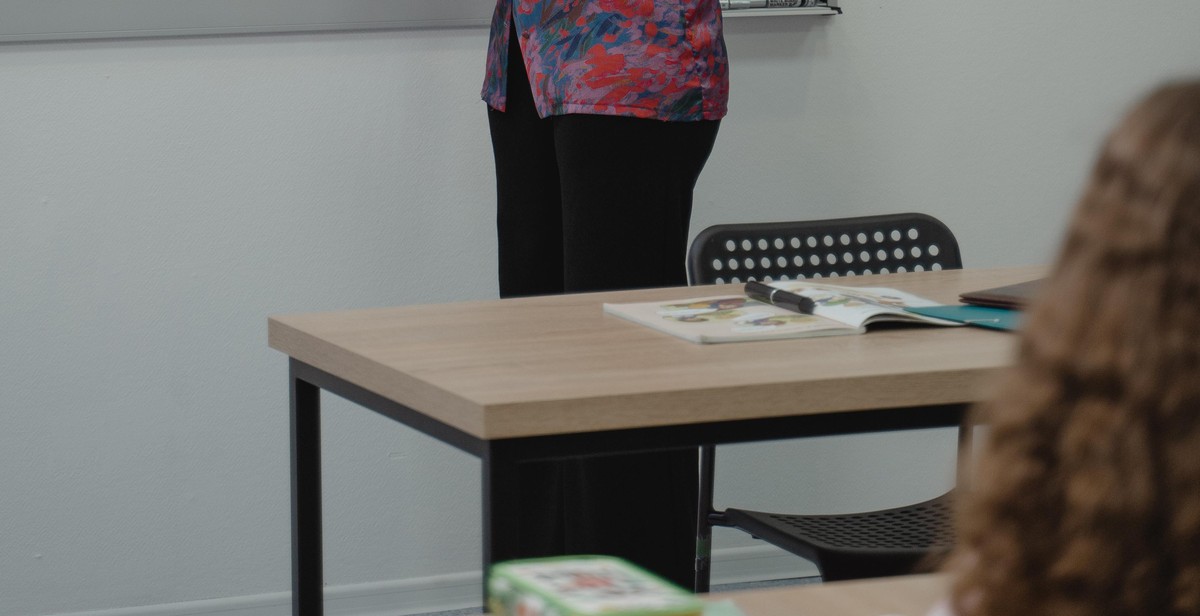The Importance of Overcoming Language Learning Plateaus
Learning a new language can be a challenging and rewarding experience. However, many language learners often find themselves hitting a plateau, where they struggle to make progress despite their continued efforts. This can be frustrating and demotivating, causing some learners to give up altogether.
It is important to overcome language learning plateaus in order to continue making progress and achieving fluency in the target language. Not only does this enhance communication skills, but it can also lead to better job opportunities, cultural understanding, and personal growth.
There are many reasons why language learners may hit a plateau. It could be due to a lack of motivation, ineffective study methods, or simply reaching a difficult stage in the language learning process. Whatever the reason, it is crucial to find effective strategies for overcoming these plateaus and continuing to make progress.
In this article, we will explore some of the most effective strategies for overcoming language learning plateaus. From changing study methods to seeking out new resources, these tips can help language learners break through their barriers and achieve their language learning goals.

Understanding Language Learning Plateaus
Learning a new language is a challenging and rewarding experience. However, at some point in your language learning journey, you may find yourself stuck in a plateau. A language learning plateau is a period where you feel like you are not making progress despite your efforts.
What Causes Language Learning Plateaus?
There are several reasons why language learners experience plateaus. One of the most common reasons is a lack of motivation. When you lose motivation, you may find yourself struggling to continue with your language learning journey. Another reason is a lack of practice. Consistent and regular practice is crucial in language learning.
Another factor that contributes to language learning plateaus is the complexity of the language. Some languages are more challenging to learn than others, and learners may find themselves struggling to make progress. Additionally, language learners may experience plateaus due to a lack of exposure to the language. Without sufficient exposure, it can be difficult to improve your language skills.
Signs of a Language Learning Plateau
It’s essential to recognize the signs of a language learning plateau to overcome it effectively. Some of the signs include:
- Difficulty in understanding new vocabulary or grammar
- Feeling stuck in your current level
- Lack of motivation to continue learning
- Difficulty in communicating effectively in the language
- Feeling frustrated with your progress
If you notice any of these signs, it’s important to take action to overcome the plateau and continue making progress in your language learning journey.
Conclusion
Language learning plateaus are a common experience for many language learners. Knowing the causes and signs of plateaus can help you overcome them effectively. It’s important to stay motivated, practice regularly, and seek exposure to the language to continue making progress in your language learning journey.

Effective Strategies for Overcoming Language Learning Plateaus
Learning a new language can be challenging, and it’s not uncommon to experience a plateau in your progress. However, with the right strategies, you can overcome these plateaus and continue to make progress towards fluency. Below are some effective strategies to help you get past language learning plateaus:
1. Change Up Your Learning Routine
One of the most common reasons for a language learning plateau is getting stuck in a routine. If you find yourself doing the same things over and over again, it’s time to switch things up. Try a new learning method, practice with different materials, or focus on a new aspect of the language. By changing your routine, you’ll keep your brain engaged and motivated to continue learning.
2. Set Realistic Goals
Another reason for a plateau is setting unrealistic goals. If you’re trying to learn too much too quickly, you may become overwhelmed and lose motivation. Instead, set achievable goals that will challenge you but are still within reach. Celebrate your progress and don’t be too hard on yourself if you don’t meet your goals right away.
3. Focus on Speaking and Listening Skills
One of the most effective ways to overcome a language learning plateau is to focus on speaking and listening skills. Many language learners get stuck in the reading and writing aspects of the language, but speaking and listening skills are crucial for fluency. Find a language exchange partner or take a conversation class to practice your speaking and listening skills.
4. Embrace Mistakes and Learn from Them
Mistakes are a natural part of the language learning process, and it’s important to embrace them. Don’t be afraid to make mistakes or feel embarrassed when you do. Instead, learn from them and use them as an opportunity to improve. Keep a record of the mistakes you make and review them regularly to avoid making the same mistakes in the future.
5. Find a Language Exchange Partner
Finally, finding a language exchange partner can be a great way to overcome a plateau. A language exchange partner is someone who speaks the language you’re learning and is interested in learning your native language. You can practice speaking, listening, and even writing with your partner, and they can offer feedback and corrections to help you improve.
| Strategy | Description |
|---|---|
| Change Up Your Learning Routine | Switch up your learning method, materials, or focus to keep your brain engaged. |
| Set Realistic Goals | Set achievable goals that will challenge you but are still within reach. |
| Focus on Speaking and Listening Skills | Practice speaking and listening skills with a language exchange partner or in a conversation class. |
| Embrace Mistakes and Learn from Them | Use mistakes as an opportunity to learn and improve. |
| Find a Language Exchange Partner | Practice speaking, listening, and writing with a language exchange partner and receive feedback and corrections. |
Additional Tips for Progressing in Language Learning
Learning a new language can be challenging, but with the right approach and mindset, anyone can make significant progress. Here are some additional tips to help you overcome language learning plateaus:
1. Immerse Yourself in the Language
One of the most effective ways to improve your language skills is to immerse yourself in the language. This means exposing yourself to as much of the language as possible. You can do this by:
- Watching movies, TV shows, and videos in the target language
- Listening to podcasts, music, and radio shows in the target language
- Reading books, articles, and news in the target language
- Speaking with native speakers or language partners
By immersing yourself in the language, you will not only improve your listening and speaking skills, but you will also become more familiar with the grammar, vocabulary, and idioms of the language.
2. Use Language Learning Apps and Resources
There are many language learning apps and resources available online that can help you improve your language skills. Some of the most popular ones include:
- Duolingo
- Rosetta Stone
- Babbel
- Memrise
- Anki
These apps and resources offer a variety of exercises, games, and activities that can help you practice your listening, speaking, reading, and writing skills. They can also provide you with instant feedback and progress tracking, which can help you stay motivated and focused.
3. Practice Consistently
Consistency is key when it comes to language learning. It’s better to practice a little bit every day than to cram for hours once a week. Make language learning a part of your daily routine by setting aside a specific time each day to practice. You can also try to incorporate the language into your daily activities, such as listening to podcasts while exercising or reading news articles during your commute.
4. Seek Out Professional Help
If you’re feeling stuck or frustrated with your language learning progress, consider seeking out professional help. This can include:
- Taking a language course at a local college or language school
- Hiring a private tutor or language coach
- Attending language exchange events or conversation clubs
Working with a professional can help you identify your strengths and weaknesses and create a customized learning plan that fits your needs and goals.
Conclusion
Learning a new language can be an exciting and rewarding experience. However, it’s not always easy, and many language learners may encounter plateaus along the way. These plateaus can be frustrating and demotivating, but they don’t have to be the end of your language learning journey. By following the effective strategies outlined in this article, you can overcome language learning plateaus and continue making progress in your language learning journey.
Keep Pushing Through Your Plateau
Remember that plateaus are a natural part of the language learning process. It’s important to keep pushing through and not give up when you encounter them. Use the strategies outlined in this article to help you stay motivated and focused, and you’ll be back on track in no time.
Set Realistic Goals
Setting realistic goals is essential for overcoming language learning plateaus. Break your language learning journey into smaller, achievable goals, and focus on achieving them one step at a time. Celebrate your successes along the way to help keep you motivated and on track.
Practice Consistently
Consistent practice is key to overcoming language learning plateaus. Make language learning a part of your daily routine, and try to practice in a variety of ways to keep things interesting and engaging. Use the strategies outlined in this article to help you stay motivated and focused, and you’ll be back on track in no time.
Try New Approaches
If you’ve been stuck in a language learning plateau for a while, it may be time to try a new approach. Consider taking a break from your usual routine and trying something new, such as a new language learning app or a different language exchange partner. Experimenting with new approaches can help you break through your plateau and continue making progress in your language learning journey.
Remember, language learning is a journey, not a destination. Keep pushing through your plateaus, stay motivated and focused, and you’ll be well on your way to achieving fluency in your target language.
